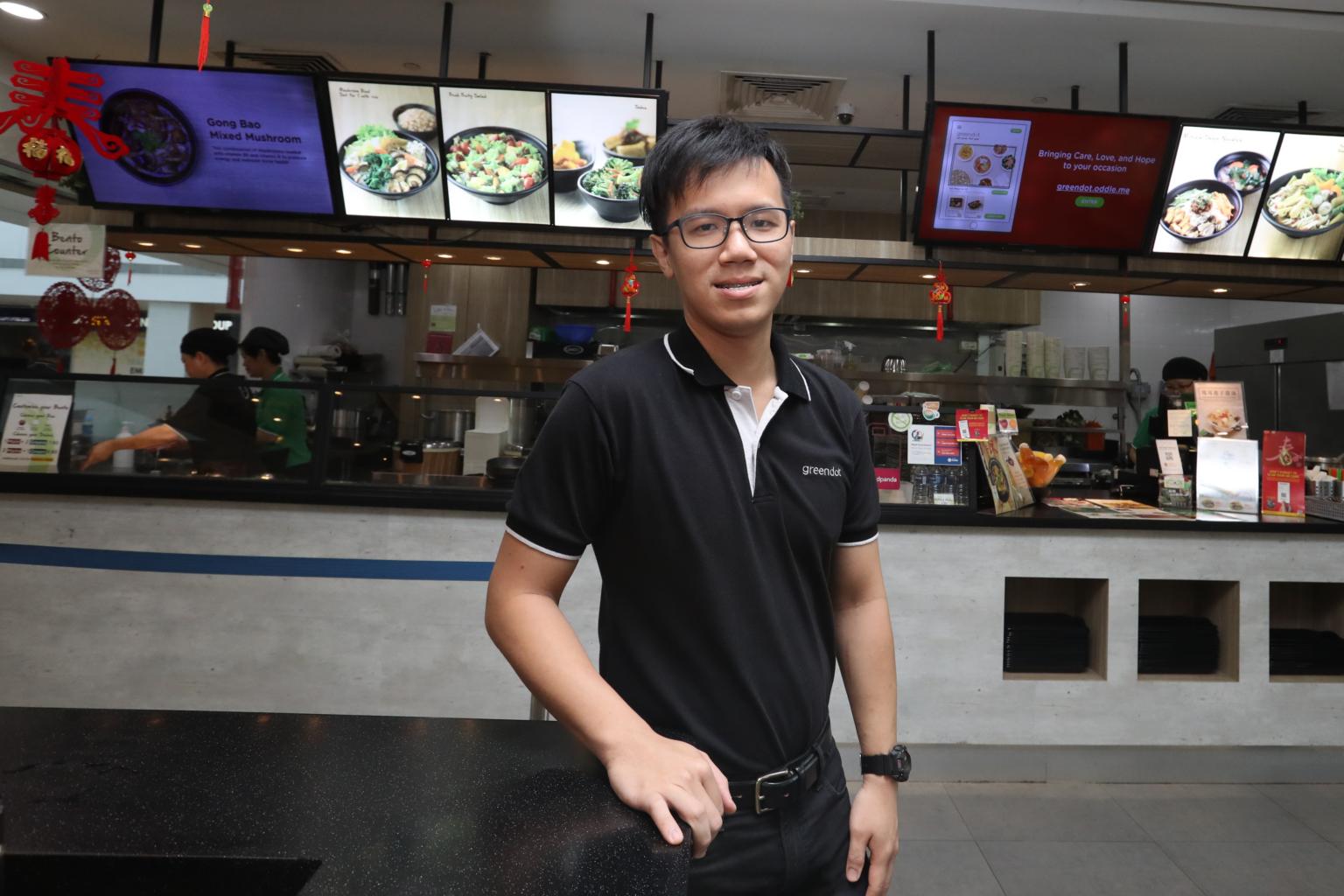Meat-free fusion eatery Greendot innovates to improve customer service, redesign jobs
Sign up now: Get ST's newsletters delivered to your inbox

Chief executive Fu Yong Hong said challenges included teething issues when the new system was first implemented.
PHOTO: LIANHE WANBAO
Follow topic:
SINGAPORE - A generous helping of technological innovation has put an end to the long slow-moving queues of hungry diners at eatery chain Greendot.
The firm used to struggle to manage the numbers, especially during peak hours as customers who wanted bento or non-bento orders joined the same line.
But help from the Service Industry Transformation Programme allowed Greendot to transform its customer service experience and redesign job roles.
It now uses a mobile ordering platform so customers can simply order from their tables.
This has allowed the firm to reduce two man hours a day spent on taking orders and improve service delivery time by over 50 per cent.
The Service Industry Transformation Programme, which is managed by the Singapore Productivity Centre and Workforce Singapore, helps lifestyle sector firms like Greendot innovate, redesign jobs and better plan their use of manpower.
Greendot, which offers an Asian-fusion menu with meat-free food at 11 outlets, has also started selling products like frozen dim sum and ready-to-eat items, a move that has increased annual takings by $36,000.
These efforts helped the company redesign the job roles of some of its 150 staff.
Chief executive Fu Yong Hong said: "The scope of work for Greendot's runners and service crew has been redesigned to a more value-added service ambassador role.
"The job redesign encompassed job enrichment where they were asked to perform higher value-added tasks such as providing guidance to customers on the ordering process, recommending menu items, and upselling the retail, frozen dim sum and ready-to-eat products.
"Existing lower value-added tasks such as processing delivery orders and assisting in bento orders have been removed from their scope of work so that they can focus on these new value-added tasks."
The initiative resulted in around 18 workers aged 40 and above being retrained.
Mr Fu added the challenges included teething issues when the new system was first implemented and helping older staff who were afraid of learning new technology.
"We were patient, understood their concerns but constantly shared with them about the importance about the new system and how they could benefit from it," he said.
"Over time, we managed to win them over and also fine-tune the operations to make things much smoother for both our customers and staff."

